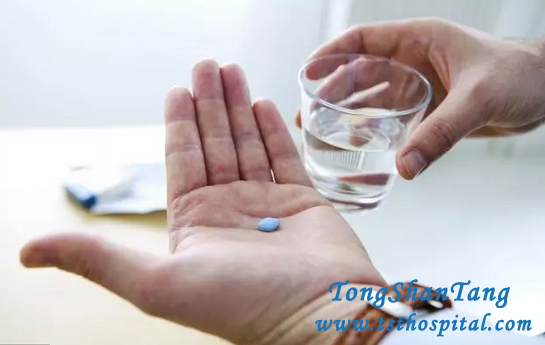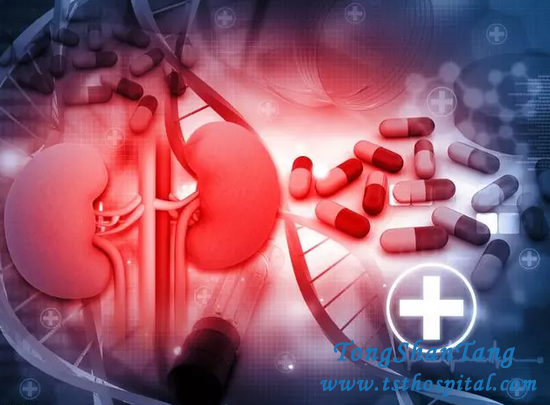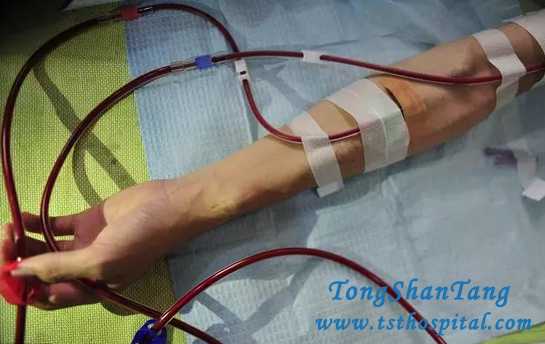In early stage of kidney disease, various symptoms may present, such as occult blood, proteinuria, high blood pressure, etc. For the treatment of those symptoms, some drugs are needed to maintain the stability of various indicators so as to prevent the declining of renal function.

In terms of drug use, it is a matter of concern for kidney disease sufferers. And every day a lot of questions are left on our website to consult the medication or illness condition related with kidney disease.
One of the troublesome problems is that even though they have used a number of drugs, their condition does not get improved at all. They do not know where the problem is. So where exactly is the problem?
Today some typical questions asked by our renal patients are edited, through which you might find out the answer to the above question.

The first patient:
Question: 52 years old, male, membranous hepatitis b kidney disease. Cyclosporin A has been taken for 9 months. Protein in urine has been decreased from 4g to 3g. But it can not be decreased further, always about 3g. Is it necessary to change into other medications?
Answer: Check DNA of hepatitis B firstly. If there is virus replication, anti-hepatitis b virus replication drugs should continue to be used. As to steroids, I suggest you to change it. You have used it for 9 months, but the effect is not satisfying, and this kind of medications can damage liver so as to worsen your liver condition, which is also bad for your kidney protection. Therefore, you had better change the current medications for kidney disease.

The second patient:
Question: Hello doctor. My daughter is 3 years old. She was diagnosed with Nephrotic Syndrome when she was 2 years old. It is Minimal Change Disease associated disease. At that time, she used steroid pulse therapy. After 10 days’ treatment, her urine protein turned negative. Though she caught colds once, her urine protein was always negative. Not until this March, she got relapsed when steroids were tapered to half piece. Is the relapse associated with rapid medication reducing?
Answer: Minimal Change Disease relapses easily. From your description, we can see that your kid has been treated with steroids, and it does not relapse at all. To reduce steroids in 1 year is not rapid. Therefore, the causes of relapse can not exclude infections, improper diet and other factors. You had better take your child to hospital for a detailed checkup in case that the disease gets worse.

The third patient:
Question: Male, 55 years old. Blood pressure 150/110, urine protein 3+. He was diagnosed with Hypertensive Nephropathy initially. In last August, anti-hypertensive medications have been used, but recent test report showed that his creatinine is over 130, urine protein 2+, blood pressure 140/90. The reduction of proteinuria is not obvious. What medicine is better?
Answer: As to this case, what you should do first is to make a clear diagnosis of pathological type. Proteinuria and high blood pressure are the typical symptoms of kidney disease. Most kinds of kidney disease have these two symptoms. But different kidney diseases have different treatment focus. For example, diabetes can also cause high blood pressure and proteinuria, but its treatment should focus on reducing blood sugar level rather than blood pressure.
From the above three kidney patients’ problems, we can find out some reasons that why the indexes do not decrease and the disease relapses although you have taken medications for a long time?

There are three main reasons for this:
1. Primary disease is not controlled. And you do not know the function of medications. For example, hepatitis B kidney disease. You should treat creatinine firstly, which can help prevent further kidney damage. Because both your liver and kidney are damaged, medications that have renal and liver toxicity should be avoided, otherwise your disease may get worse.
2. Ignore factors that can cause a relapse such as catching a cold. The role of drugs is limited, especially the role of steroids. To avoid relapse, you should not only play the role of drugs, but also pay attention to the factors that can cause relapse, such as infections and diet.
3. Ambiguous diagnosis and incorrect treatment.
If you still have any other questions on kidney disease, please leave a message below or contact online doctor.
- Email:tsthospital@hotmail.com
- WhatsApp/WeChat/Phone Number:+86 15512139310
- Kidney Treatment Group:
- https://chat.whatsapp.com/2ZCOvebPJdr9QGkyfiqxDz
- Tag: CKD ckd treatment
- previous:Treatment of Renal Parenchymal Disease
- next:Controlling These Five Risk Factors Should Go Ahead of Curing Kidney Disease

